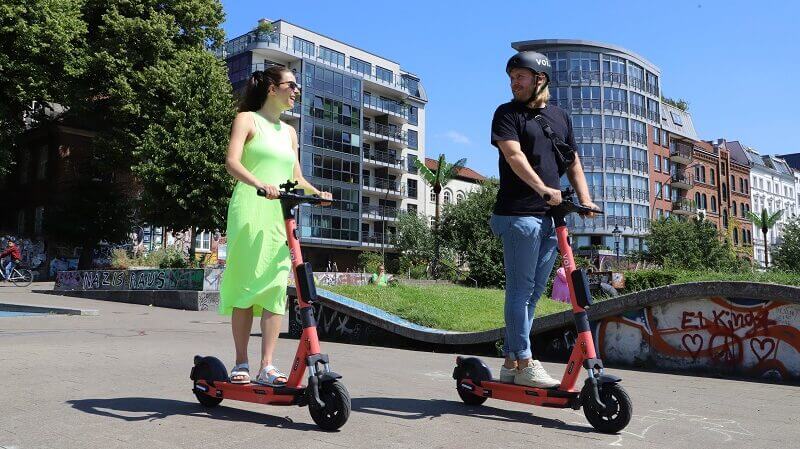
After the city of Gelsenkirchen banned e-scooters, there is a heated debate in many places about how useful the scooters are. Although they have disadvantages, they also make an important contribution to mobility. A comment.
It was just over a week ago that the city of Gelsenkirchen imposed a ban on e-scooters. The reasons behind this are varied, but the actual benefits of the scooters often play a role for decision-makers. E-scooters often don't fare well. Users often leave them carelessly in the area, sink them in rivers or drive under the influence of alcohol.
At the same time, studies show that transportation is not as sustainable as many may believe. Nevertheless, I would like to take a stand for e-scooters and explain why I consider the offer to be useful. Background: I currently live in Munich and see the positive and negative sides of technology every day. In my opinion, the sector just needs more regulation, not a complete ban.
E-scooters as a sensible mobility offer
In my opinion, e-scooters are a sensible means of transport because public transport doesn't always run smoothly. An example is the S-Bahn main line in Munich. There are constant closures due to people on the tracks, police operations or defective trains.
Some stations do have the option of being bypassed using other means of transport. But this costs a lot of time and at the same time causes other subways, buses and trams to be overcrowded and delayed. This can double the travel time.
I have already experienced situations in which an e-scooter saved my day. On the way to the doctor there was a route closure. Thanks to an e-scooter available nearby, I reached the appointment at the agreed time without any stress. Another time there was no movement on the main route due to a police operation. My options: a 20-minute detour home or switching to an e-scooter.
Targeted controls and account blocks as an alternative to bans
However, there is a problem: Many users carelessly leave the vehicle standing there or throw it into rivers or nature. More controls and higher penalties could put a stop to this approach. The rental processes are also traceable and it is therefore possible to trace who last used a device.
However, providers would have to provide a way to report parking violations so that the behavior of reckless drivers can be punished quickly.
An example: A passerby or the police reports a poorly parked scooter. Using the time and route profiles, the provider can determine the last user and issue a warning (similar to the points system in road traffic).
Once a certain number of points are reached, the user pays a penalty and is permanently excluded from the respective service.
Voi, Tier, Lime and Co. could also implement additional interfaces to permanently block blocked users from all services. The mere awareness of a possible blockage is likely to cause many users to rethink and perhaps defuse the situation on the streets.
Conclusion: E-scooters have a purpose
E-scooters can definitely make sense. If the providers punished negative behavior better and the city designated parking zones for scooters, the parking problem could be solved in the medium term. In addition, providers like Tier show that charging and therefore operations can be made much more sustainable.
Instead of bringing the scooters to charge in a diesel van, charging stations and replaceable batteries can be a solution. The customer then receives a voucher when they exchange the old battery for a charged model. In my opinion, the technology does not necessarily need to be banned.
Notice: This article is a comment. This is a journalistic form of presentation that explicitly reflects the opinion of the author and not the entire magazine. The comment does not claim to be objective, but is intended to stimulate the formation of opinions and is protected as an opinion piece by Article 5 of the Basic Law.
Also interesting:
Source: https://www.basicthinking.de/blog/2024/04/25/e-scooter-sinnvoll/


